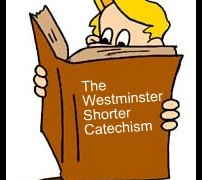34 “Then the King will say to those on His right, ‘Come, you who are blessed of My Father, inherit the kingdom prepared for you from the foundation of the world. 35 For I was hungry, and you gave Me something to eat; I was thirsty, and you gave Me something to drink; I was a stranger, and you invited Me in; 36 naked, and you clothed Me; I was sick, and you visited Me; I was in prison, and you came to Me.’ 37 Then the righteous will answer Him, ‘Lord, when did we see You hungry, and feed You, or thirsty, and give You something to drink? 38 And when did we see You a stranger, and invite You in, or naked, and clothe You? 39 When did we see You sick, or in prison, and come to You?’ 40 The King will answer and say to them, ‘Truly I say to you, to the extent that you did it to one of these brothers of Mine, even the least of them, you did it to Me.’ (Matthew 25, NASB)
Here I sit at the start of a new week, and yet it is somehow different. I imagine that it’s a little bit like what Frodo mentions in his monologue after returning to the shire at the end of his great adventure. And just like Frodo, I find myself saying, “How do I go back to a life, when so much has changed – when everything has changed?” And so the question now turns to: what adventure has caused such change? My answer is: a week in south east DC, partnering with TeamEffort and 3 other churches from Ohio and N. Carolina to serve and minister to the weak, poor, and overlooked in the name of Jesus.
I must admit that when it comes to Christian ministry, I talk a big game about past experiences and like to position myself as some expert in it. And yet when it comes to missional work – I am sadly INexperienced. There were numerous stories, encounters, and lessons learned – too much to mention all here – and I can say with great confidence that in spite of the physical woes (due to my out of shape status), my spirit soared and finds itself now renewed and recharged. This seems odd to some. It was a response of one when they asked about the trip upon our return – that despite physically draining activities, my spirit had somehow been well fed and rested.
How can this be?
The answer lies in the above passage from Matthew 25. It’s that when we go out to be “Jesus with skin on” – that’s where we find Him. And so contrary to popular belief, preconceived notions, and maybe even common sense – I found Jesus in spite of physical hardships, in the hot, humid streets of southeast DC – in the roughest neighborhoods. And in Him, I found true rest.
Check out this song by Steven Curtis Chapman!






